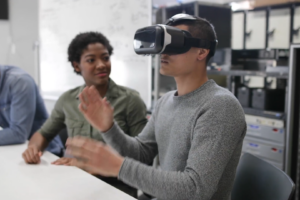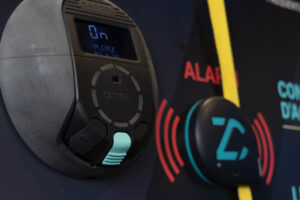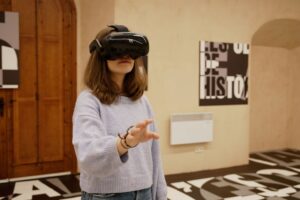
ECOSUN: Improvement of efficiency in thermal and photovoltaic cogeneration systems
June 5, 2024
Compass+: Artificial intelligence and machine learning for maritime traffic management at the Port of Barcelona
June 26, 202407/06/2024
The EU.FFICIENT (European Communities of Facilitators focused on Co-creation training, Networking and Hands-on learning) project, launched in January 2024, aspires to transform and enhance the co-creation landscape across Europe. Funded under the EU framework, the project brings together a consortium of 16 partners from 12 countries, boasting a diverse blend of academic, industrial and public sector partners. The initiative, with CIT UPC standing as a one of key participants, represents an investment in the future of collaborative innovation.
At its core, EU.FFICIENT seeks to address the often fragmented and inefficient co-creation processes that hinder innovation. The project’s aim is to create, pilot and validate Communities of Expert Facilitators (CEFs) that can navigate and streamline co-creation processes in Europe. By focusing on personalized training, networking, and practical, hands-on learning experiences, the project endeavours to create a sustainable and replicable model that will serve as a blueprint for collaboration across Europe.
The innovation model proposed by EU.FFICIENT is structured around the creation of four pilot CEFs, each dedicated to a critical sector of European industry and innovation: Advanced Manufacturing, Mobility, HealthTech, and AI/Digital. These pilots are designed to facilitate an organic cross-fertilization of ideas and methodologies, thus enabling a thorough cross-comparison and the generation of best practices that can be adapted and applied to various fields.
CIT UPC’s involvement in EU.FFICIENT is a testament to its ongoing commitment to fostering collaboration between academia and industry. As a recognized leader in transferring technology and knowledge, CIT UPC's role in the project will likely encompass leveraging its extensive capabilities, providing expertise in the facilitation of innovation, through its role as the leader of Piloting of the four CEFs. This participation underscores the value of cross-disciplinary and cross-border collaboration in tackling complex challenges and fostering innovation.
In addition to CIT UPC, other participants in this project are KU Leuven (leader of the project) and Flanders Make (Belgium), the Karlsruher Technology Institute KIT (Germany), Innoget (Spain), Fondazione Politecnico di Milano (Italy), University of Maribor (Slovenia), EIT Manufacturing and i2m (Austria), Centrale Supélec (France), TICE.PT (Portugal), Sunrise Valley Technology Park (Lithuania), Skellefteå Municipality (Sweden), University Industry Innovation Network (The Netherlands), CSEC - Centre for Strategy & Evaluation Services Europe (Ireland).
The project has a duration of three years (2024-2026) and a budget of two million euros. EU.FFICIENT has received funding from the European Union’s Horizon Europe Programme under grant agreement No 101135297.


Technology
Topic
You want to know more?
Related Projects
- The Visualisation, Virtual Reality and Graphic Interaction Research Group (ViRVIG) at the Universitat Politècnica de Catalunya - BarcelonaTech (UPC) has participated in the XR4ED project, an initiative that connects the educational technology (EdTech) and Extended Reality (XR) sectors, with the aim of transforming learning and training across Europe.
- The inLab FIB at the UPC has collaborated with Lizcore® for the development of a proof of concept based on artificial intelligence to improve safety in climbing with autobelay devices. The system allows the automatic and accurate detection of risk situations before starting a route.
- Researchers from the Centre for Image and Multimedia Technology of the UPC (CITM) and from the DiCode research group (Digital Culture and Creative Technologies Research Group) of the Universitat Politècnica de Catalunya – BarcelonaTech (UPC) have worked on the project The Eyes of History, an initiative of the Catalan Agency for Cultural Heritage that offers an immersive view of Catalan cultural heritage. It is especially aimed at the first and second cycles of secondary education and was created to bring heritage into the classroom. Its goal is to bring the history and monuments of Catalonia closer in a vivid and innovative way, using tools such as virtual reality and new museographic narratives.
- City and Play is a social action project coordinated by researchers from the Centre for Image and Multimedia Technology (CITM) and the DiCode research group (Digital Culture and Creative Technologies Research Group) of the Universitat Politècnica de Catalunya – BarcelonaTech (UPC), the Universitat Oberta de Catalunya (UOC) and the University of Barcelona (UB), and funded by Barcelona City Council. The aim of the project is to promote civic competences and reflection on the urban environment among adolescents through the creation of an open framework that uses methodologies based on play, co-creation and storytelling.




